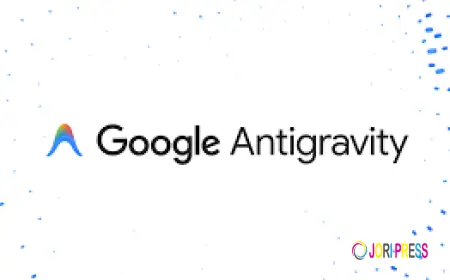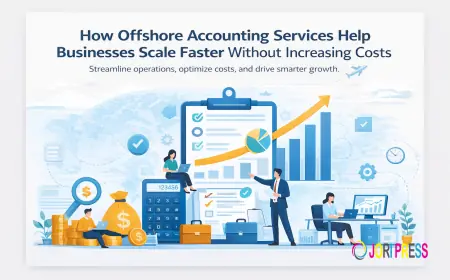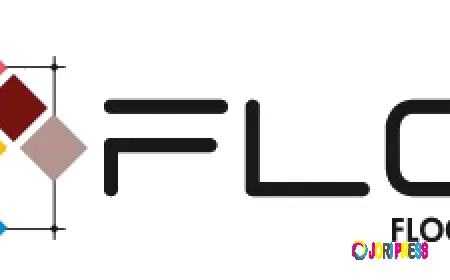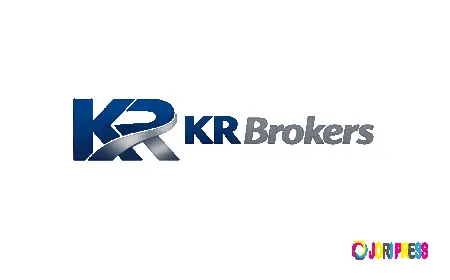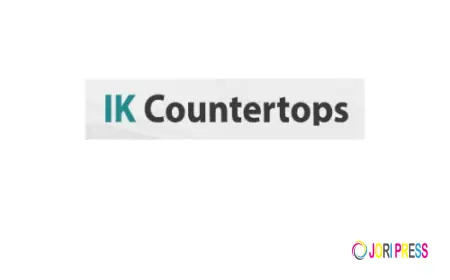How DeFi Token Development Firms Are Powering the Next Web3 Wave
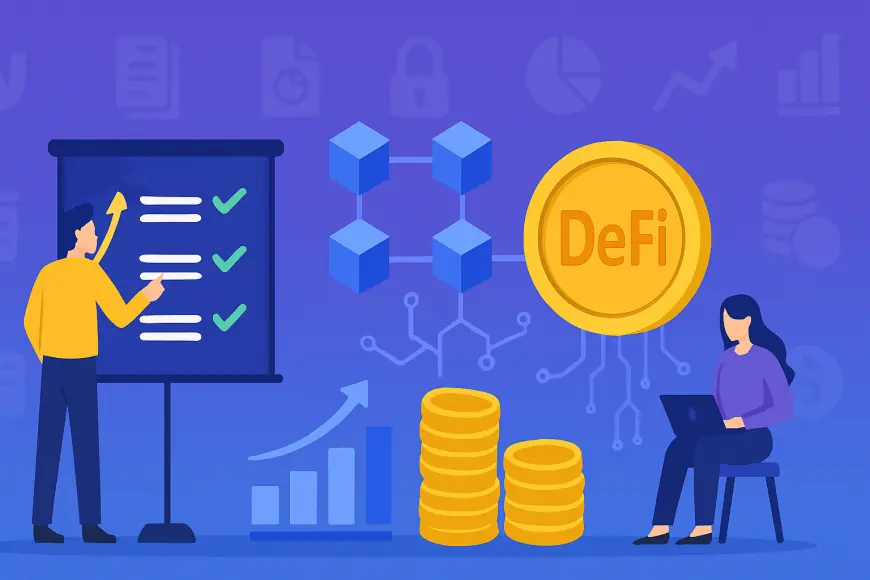
Web3 is undergoing a transformative shift, evolving from a speculative buzzword into a foundational layer for the next generation of decentralized applications, financial instruments, and digital communities. At the center of this revolution is the decentralized finance (DeFi) movement—an open-source alternative to traditional financial systems that eliminates intermediaries and empowers users. While the foundational protocols of DeFi were first introduced during the 2020-2021 bull cycle, the current phase in 2025 is marked by a maturing market, deeper utility, and institutional interest. In this environment, DeFi token development firms have become the unsung heroes of innovation, acting as architects behind the launch and success of countless decentralized ecosystems. These firms aren't just building tokens—they're shaping the infrastructure of tomorrow’s internet.
Understanding the Core Role of DeFi Tokens in the Web3 Ecosystem
To grasp the influence of DeFi token development firms, it’s essential to understand the fundamental role tokens play in the Web3 landscape. DeFi tokens serve as digital representations of value, governance rights, and incentive mechanisms within decentralized platforms. Unlike traditional crypto coins like Bitcoin or Ethereum that primarily function as stores of value or transactional currencies, DeFi tokens are highly programmable. They are designed with embedded utility such as yield farming, liquidity provision, DAO voting, staking rewards, and more. This programmability transforms simple tokens into dynamic economic engines that power decentralized lending platforms, automated market makers (AMMs), insurance protocols, and prediction markets.
The key here is composability—DeFi tokens can seamlessly interact with various smart contracts and other protocols, which makes them foundational building blocks in an interconnected Web3 ecosystem. The firms developing these tokens play a pivotal role in architecting the tokenomics, coding the smart contracts, ensuring security, and helping protocols evolve from idea to functioning ecosystems.
From Concept to Code: The Token Development Process Unveiled
The journey of launching a successful DeFi token begins with a strong idea, but execution is where the real work begins. Token development firms offer full-cycle services that transform whitepaper concepts into robust digital assets. It starts with tokenomics design, where experts craft the economic blueprint that governs how tokens are distributed, earned, and spent within a platform. This phase is critical because poorly designed tokenomics can lead to inflationary collapse, weak community participation, or speculative volatility.
After solidifying the economic model, development firms proceed with smart contract development. These contracts must be gas-efficient, secure, and adaptable to future upgrades. Once coding is completed, extensive auditing takes place, either internally or via external partners, to eliminate vulnerabilities and bugs that could jeopardize the ecosystem. Following development and auditing, firms assist with token launch strategies—including Initial DEX Offerings (IDOs), liquidity pool creation, cross-chain deployment, and integration with wallets and exchanges. The result is a production-ready DeFi token that can thrive in the competitive Web3 landscape.
Strategic Tokenomics: Crafting Economic Models That Scale
One of the most valuable offerings of DeFi token development firms lies in their ability to design scalable, resilient tokenomics. Tokenomics is not just about total supply or allocation percentages—it involves a deep understanding of game theory, behavioral economics, and market cycles. Development firms conduct research on competitors, simulate different economic models, and tailor mechanisms to incentivize long-term engagement.
A robust DeFi tokenomic model ensures the token can facilitate governance decisions, incentivize liquidity providers, maintain scarcity, and adapt to network growth without collapsing under inflation. Some models include dynamic staking rewards, deflationary burns, tiered governance levels, and vesting periods for founders and early investors. The firms build these mechanisms in a way that is transparent, auditable, and easily understood by the community. Ultimately, great tokenomics drive user trust and protocol adoption—two crucial ingredients for Web3 success.
Multi-Chain and Interoperability: Expanding the Reach of DeFi Tokens
The DeFi space is no longer confined to a single blockchain. While Ethereum remains the foundational layer, gas fees and congestion have opened doors for alternatives like BNB Chain, Polygon, Avalanche, Solana, Arbitrum, and more recently, zk-rollups and layer-2 solutions. Token development firms play a key role in ensuring DeFi tokens are cross-chain compatible and seamlessly interoperable with multiple ecosystems.
Through the use of bridges, wrapped tokens, and interoperability protocols, these firms enable tokens to be utilized across different chains without compromising on speed or security. This approach not only improves liquidity and user accessibility but also expands the overall market reach for DeFi platforms. For example, a lending protocol may deploy its token on both Ethereum and Arbitrum, capturing users from both ecosystems while maintaining synchronized governance across chains. In 2025, multi-chain support is no longer optional—it’s a necessity, and development firms are at the forefront of this strategic expansion.
Regulatory Readiness and Security: Building Trust in a Compliant Era
As DeFi becomes mainstream and starts attracting institutional capital, regulatory scrutiny has intensified. Token development firms help navigate this landscape by ensuring tokens comply with regional and international standards. They integrate Know Your Customer (KYC), Anti-Money Laundering (AML), and smart contract whitelisting where necessary, without compromising the decentralized ethos of the protocol.
Additionally, these firms prioritize security at every stage of development. Given the rise in smart contract hacks and exploits, a single vulnerability can drain millions in user funds and destroy reputations. Professional DeFi token developers conduct multi-phase audits, stress testing, and continuous monitoring post-launch. Some even integrate automated threat detection and fail-safe mechanisms into the token’s code. In an era where investor trust is hard-earned and easily lost, security and regulatory foresight have become competitive advantages.
Community-First Development: Aligning Tokens with Governance and Incentives
Web3’s biggest strength is community ownership, and successful DeFi tokens must reflect this principle. Token development firms work closely with project founders to ensure that governance features are deeply embedded within the token’s design. This includes on-chain voting mechanisms, DAO treasury allocations, quadratic voting rights, and community rewards.
By giving token holders real power to propose and vote on protocol changes, DeFi projects become more resilient, adaptive, and user-aligned. Development firms also advise on airdrop strategies, early contributor rewards, and gamified incentives to bootstrap active, loyal communities. The result is a feedback loop where user contributions enhance the platform, and the platform, in turn, rewards the users. This model aligns perfectly with the ethos of decentralization and ensures long-term protocol sustainability.
Integration with DeFi Protocols and DApps: Enabling Real-World Utility
Beyond the creation of a token lies the question of utility. How is the token used within its ecosystem? DeFi token development firms don’t stop at deployment—they ensure that tokens are fully integrated with decentralized applications (DApps), exchanges, and liquidity pools. This includes building or integrating with Automated Market Makers (like Uniswap or PancakeSwap), lending/borrowing platforms, staking vaults, and yield farms.
By ensuring smooth integration, development firms help tokens gain immediate utility post-launch, avoiding the dreaded “dead token” scenario where assets exist but have no use case. The firms also coordinate with Web3 middleware services, price oracles, cross-chain bridges, and analytics platforms to maximize token visibility and performance. These integrations ensure that the token is not only technically sound but also valuable within the broader DeFi ecosystem.
Marketing, Token Launch, and Ecosystem Growth Strategies
Even the most well-designed token can struggle if it lacks visibility. This is why top-tier DeFi token development firms also support marketing and launch strategies. From building launchpads to managing IDOs, partnerships, influencer campaigns, and community building, these firms drive awareness around the token.
They curate narratives that resonate with early adopters, execute social media campaigns, and activate community engagement strategies such as token-gated access, quizzes, NFT rewards, and ambassador programs. Firms often collaborate with crypto media, influencers, and KOLs to generate excitement leading up to and following the launch. Post-launch, they provide analytics dashboards, engagement tools, and update mechanisms that help maintain momentum. This ecosystem-centric growth strategy transforms a simple token launch into a thriving DeFi movement.
Case Studies: How Top Firms Are Transforming the DeFi Landscape
Several DeFi tokens that have captured attention in 2025 have done so with the help of professional token development firms. From high-yield synthetic asset platforms to decentralized prediction markets and AI-integrated DeFi protocols, the variety of use cases is staggering. For example, projects like SynthVault, a protocol offering on-chain synthetic stocks, leveraged a development firm to create dynamic rebasing tokenomics and advanced smart contract logic to reflect off-chain prices on-chain.
Another firm helped a DAO-powered insurance platform integrate cross-chain risk models and liquidity-sharing pools, enabling their token to act as a governance tool while backing real-world decentralized underwriting. These case studies demonstrate how firms go beyond basic technical development, becoming co-creators and strategic advisors that shape the future of Web3.
Looking Ahead: The Future of DeFi Token Development in Web3 3.0
The next evolution of Web3 will be driven not just by decentralization, but by the convergence of AI, cross-chain interoperability, and real-world assets. DeFi tokens will continue to evolve beyond simple utilities and into programmable, intelligent financial instruments. As new verticals like DeFAI (DeFi + AI), RWA tokenization, and sovereign rollups emerge, the role of token development firms will expand significantly.
They will be called upon to implement AI-driven governance logic, integrate real-time data from IoT oracles, support dynamic identity systems, and enable compliant access to tokenized real-world assets like real estate, energy credits, and intellectual property. This evolution will demand deeper expertise in finance, technology, and global compliance—skills that the most sophisticated DeFi token development firms are already cultivating.
Conclusion:
As Web3 continues to mature, DeFi token development firms are proving to be more than technical service providers. They are strategists, architects, compliance experts, and ecosystem builders. Their ability to craft high-utility tokens, engineer robust economic systems, ensure security, and drive user adoption is essential to the sustained growth of decentralized finance.
In a space that moves fast and rewards innovation, these firms operate at the cutting edge, bringing to life the tokenized economies of tomorrow. Whether it's launching a revolutionary DAO, powering a next-gen lending protocol, or integrating AI into DeFi mechanics, these firms are at the core of what’s next in Web3. As new challenges and opportunities emerge in 2025 and beyond, one thing is clear—DeFi token development firms are powering the next wave of decentralized innovation, and their impact is just beginning.
What's Your Reaction?
 Like
0
Like
0
 Dislike
0
Dislike
0
 Love
0
Love
0
 Funny
0
Funny
0
 Angry
0
Angry
0
 Sad
0
Sad
0
 Wow
0
Wow
0


